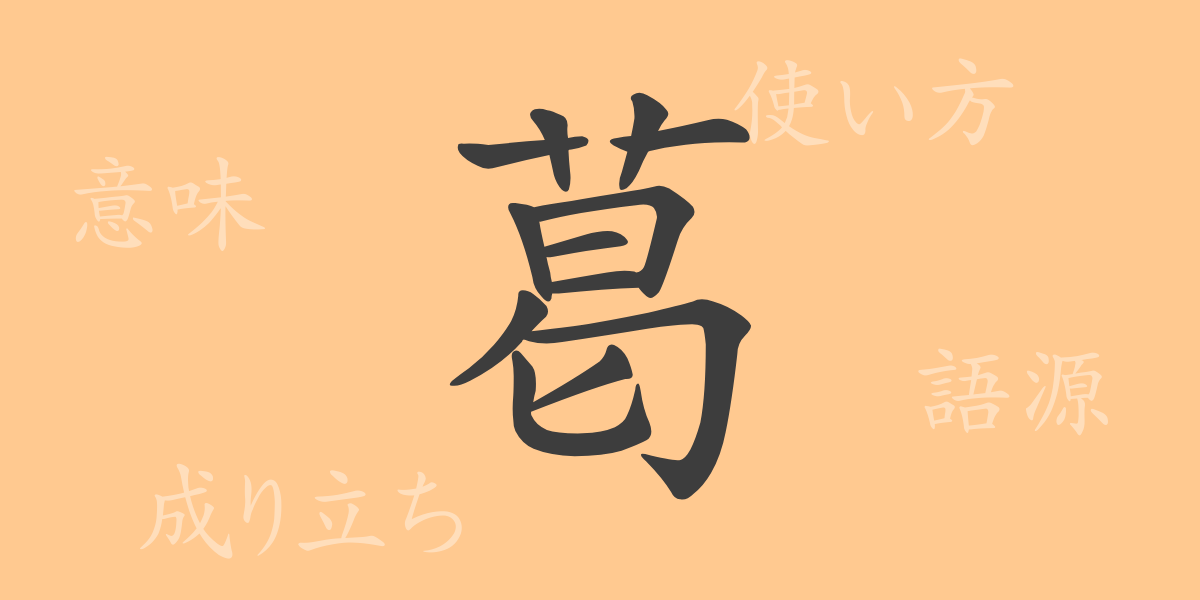Japan’s character culture has a deep history, and among them, the commonly used Kanji are deeply ingrained in the daily lives of Japanese people. In this feature, we spotlight one such Kanji, “Kuzu” (葛), and delve into its allure. Kuzu has played a variety of roles in Japanese tradition and culture, from cuisine to literature. This article will unravel the full picture of Kuzu, from its etymology to its meaning, usage, and even its presence in idioms and proverbs.
The Origin of Kuzu (Etymology)
The character “Kuzu” (葛) originates from a Kanji that has been used in China since ancient times. The etymology of Kuzu is derived from the plant kudzu, as seen in terms like “Kattou” (葛藤) or “Kakkontou” (葛根湯). In ancient China, kudzu was valued for its fibers and medicinal properties, which is reflected in the significance of the character.
The Meaning and Usage of Kuzu
While the Kanji “Kuzu” (葛) has multiple meanings, it primarily refers to the kudzu plant. Additionally, Kuzu is used metaphorically to describe situations that are intertwined or complex. It is also used in the names of dishes and as a component in ingredients, showcasing its wide usage in Japanese culture.
How to Read Kuzu, Stroke Count, and Radical
Let’s look at the reading, structure, and other aspects of the Kanji “Kuzu” (葛).
- Reading: The on’yomi reading is “Katsu,” and the kun’yomi reading is “kuzu.”
- Stroke Count: The Kanji “Kuzu” (葛) has 12 strokes.
- Radical: The radical of “Kuzu” (葛) is “Kusakanmuri” (艸), which classifies it among Kanji that represent plants.
Idioms, Proverbs, and Phrases Using Kuzu and Their Meanings
Idioms, proverbs, and phrases that include “Kuzu” (葛) are used in various ways in the Japanese language. Here are some examples:
- Kattou (葛藤): An internal struggle that makes it difficult to make a decision.
- Kakkontou (葛根湯): A type of traditional Chinese medicine used for early symptoms of a cold.
- Kuzuki-ri (葛切り): A Japanese confectionery made by kneading kudzu starch, solidifying it, and then cutting it into pieces.
Conclusion on Kuzu
Through this article, we have gained a deeper understanding of the rich history and meaning of the Kanji “Kuzu” (葛), as well as its various uses. “Kuzu” is not only a word but also an element deeply rooted in our daily lives and culture in Japan. By learning about its diversity and history, we can further deepen our affection for Kanji.

























